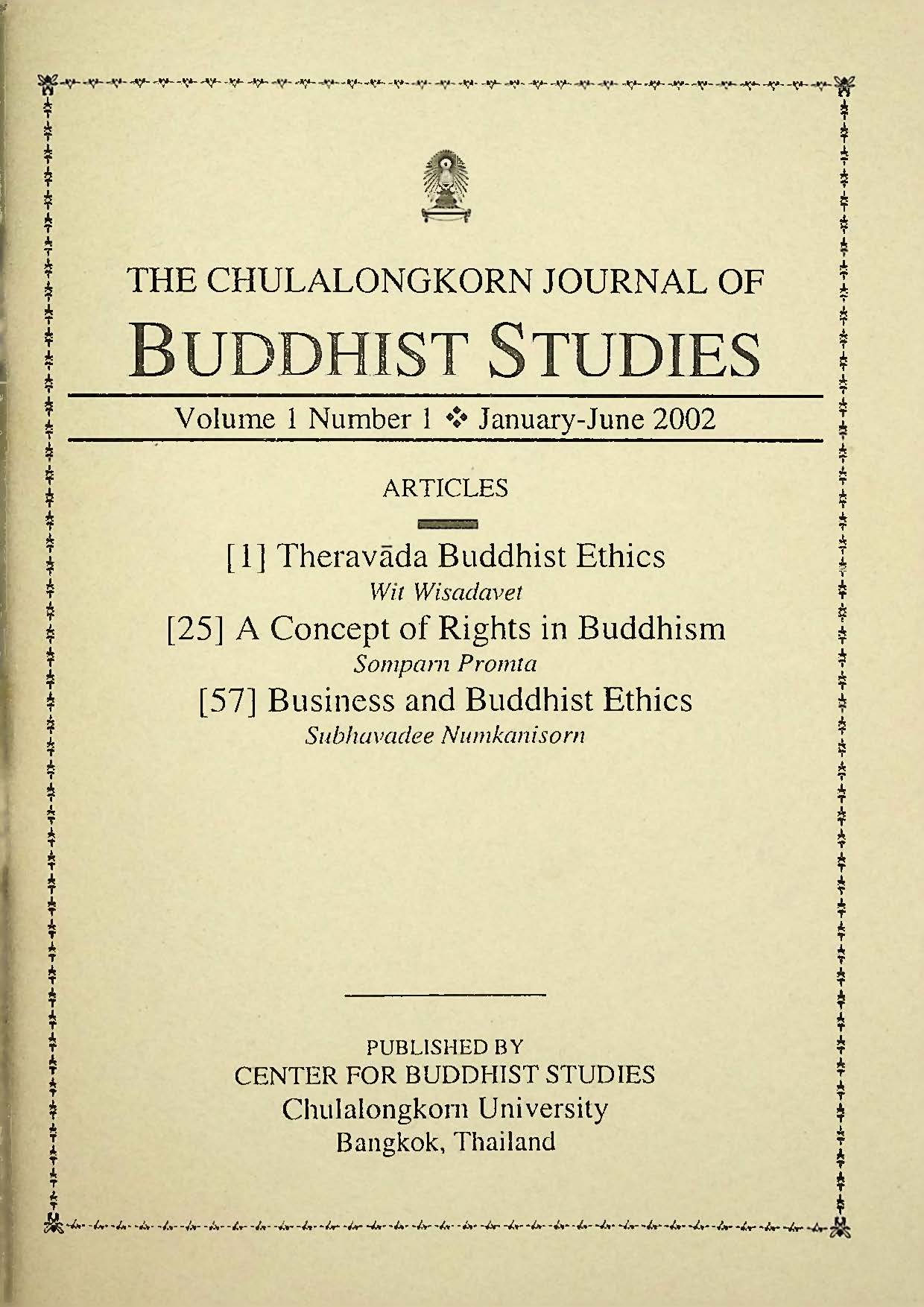A CONCEPT OF RIGHTS IN BUDDHISM
Abstract
There are a number of scholars who think that Buddhism does not give teachings on the subject of rights as known in Western A philosophy. The rationale for this conclusion is that the Buddhist system of morality can be seen to be based on the individual as agent (nge/zi-based morality). It is not a system of morality based on demands for rights (r/g/zz-based morality). A right-based morality utilizes the concept of rights as a gauge forjudging an action as right or wrong. For example. Mr. Black steals money from Mr. Red. Mr. Black’s action is wrong because it violates Mr. Red's property rights. An agent-based morality utilizes the concept of individual worth as a gauge for judging an action as good or evil. If an action raises the human worth of its agent it is a good action, and if it lowers that person's human worth, it is a bad one. In the example above, according to the agent-based morality, Mr. Black's action is wrong not because it infringes on Mr. Red's property rights, but because it lowers Mr. Black's own personal worth.
Scholars who believe that Buddhism has no teachings on rights maintain that when Buddhism deems a certain action to be immoral, it means that the action lowers our personal worth, and in deeming a certain action to be good, it means that the action raises our personal worth. Thus it may be said that the Buddhist system of morality is of the agent-based theory, not the right-based one.
All these views arise from a failure to discern that the Buddhist system of morality actually contains two superimposed systems. Before going into the various problems, I would like to begin by dividing the Buddhist system of morality into two different systems. Once this point has been clarified, the way to creating a Buddhist social philosophy will be clearer, and in the process we will find out whether it is right to state that Buddhism has no teachings on rights.







